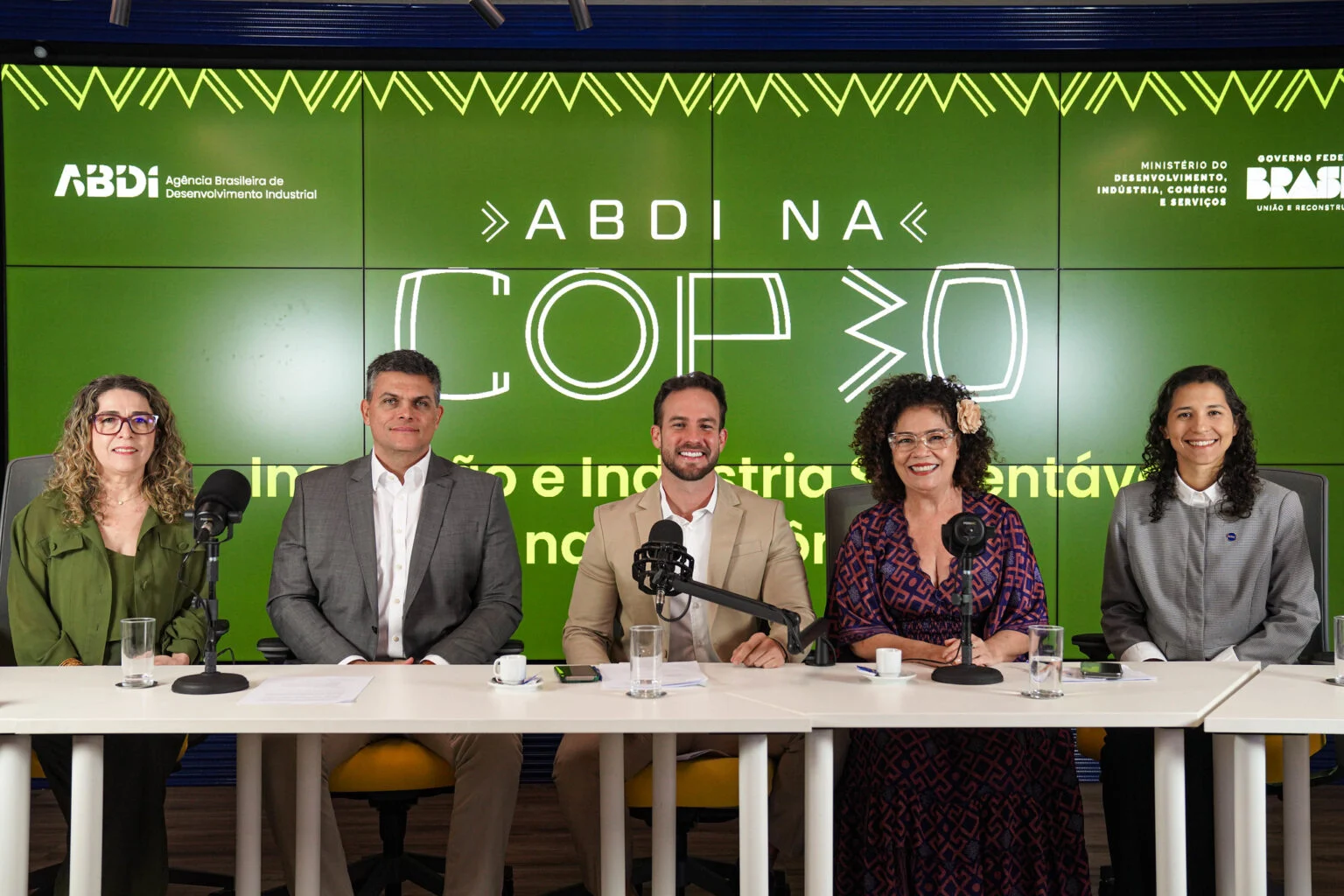ABDI Discusses COP30, Innovation, and Sustainable Industrialization in the Amazon
The event convened subject-matter experts to discuss the role of bioeconomy and industry in environmental preservation while generating employment and income

With the Brazilian Agency for Industrial Development (ABDI)
The Brazilian Agency for Industrial Development (ABDI) hosted the live event ABDI at COP30: Innovation and Sustainable Industry in the Amazon, broadcast via YouTube. The event convened experts and representatives from the public sector and civil society to discuss the challenges and opportunities of sustainable industrialization in the Amazon region, grounded in the integration of bioeconomy, technology, and inclusive development.
During the broadcast, the agency presented its projects and explored ways to reconcile environmental preservation with employment and income generation.The event featured the participation of Perpétua Almeida, Director of Sustainable Economy and Industrialization at ABDI; Marcelo Thomé, President of the Amazon+21 Institute; Julia Cruz, Secretary of Green Economy at the Ministry of Development, Industry, Trade and Services (MDIC); and Neide Freitas, Coordinator of the ABDI at COP30 project. The session was moderated by journalist Daniel Adjuto.
Director Perpétua Almeida opened the meeting by reaffirming the agency’s commitment to positioning industry as an ally of the forest.
"It is not possible to meet the international commitments undertaken by Brasil without the involvement of industry. How can we decarbonize, for example? Through industry. At COP30, ABDI will showcase how we are aligning sustainable development with job creation, new technologies, and, above all, with the diverse initiatives emerging from the Amazon", she stated.
In this context, Marcelo Thomé highlighted the challenges of attracting investors committed to developing sustainable businesses in the Amazon.
"The major challenge lies in overcoming the prejudice that the Amazon cannot—or should not—be a destination for investment. We have three well-established, capital-intensive sectors—mining, energy, and agribusiness—that strongly represent the regional economy. Other sectors still rely on investments in innovation, project development support, and financial resources. Those unfamiliar with the region often hesitate—due either to misconceptions or uncertainty about identifying the most promising initiatives. The Amazon+21 Institute was established to address these challenges," he explained.
Julia Cruz, Secretary of the Brazilian Ministry for Development, Industry, Trade and Services (MDIC) emphasized the importance of aligning industrial policy with sustainability. "The government supports research and development initiatives that converge with this model of social and environmental development. Examples include the Climate Fund, the Amazon Fund, and the New Industry Brasil initiative, which, through the More Production Plan, provides incentives for the decarbonization of Brazilian industry. It also supports small businesses that, through innovation and technology, incorporate traditional knowledge, foster local development, and integrate Brasil into global value chains," she stated.
Neide Freitas, coordinator of the ABDI project at COP30, highlighted the involvement of local actors, such as traditional communities and small entrepreneurs, as essential to ensuring that sustainable industrialization is inclusive and generates real impact in the Amazon. She cited the Manaus Free Trade Zone as an example of regional economic strength.
"The hub is essential to unlocking the forest’s development potential. But today, the hub is somewhat disconnected from sharing this diversity. How do we bridge this gap? How can we ensure that the Manaus Industrial Hub engages with the biodiversity and wealth of the Amazon? This is a concrete project to which ABDI is committed."
Freitas also mentioned projects such as the Recircula Brasil platform, the Sustainable Amazon Coffee initiative, and the mapping of the Bioindustry in the Legal Amazon.
